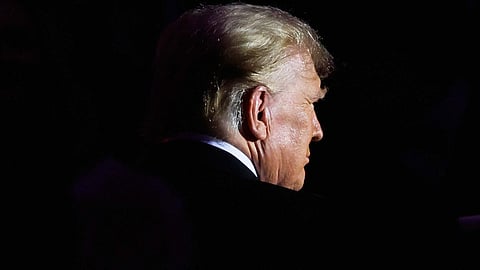‘Trumponomics’ Mark II: What to expect from a bold return to ‘America first’ policies if Trump wins 2024
In the 2024 campaign, Donald Trump aims to leverage his economic track record against Joe Biden, banking on widespread voter trust in handling financial issues. Trump's strategy includes reinforcing the "America First" trade agenda, particularly targeting China with tariff hikes and potential decoupling measures. He plans to make his individual tax cuts permanent, with a focus on fiscal restraint, deregulation, and immigration restrictions. Trump vows to reverse Biden's climate policies, challenge the Federal Reserve, and revive a pro-American energy policy. The campaign's central theme echoes Reagan's iconic question: "Are you better off than you were four years
Sign up for your early morning brew of the BizNews Insider to keep you up to speed with the content that matters. The newsletter will land in your inbox at 5:30am weekdays. Register here.
Trumponomics 2.0: What to Expect If Trump Wins the 2024 Election
By Enda Curran and Nancy Cook
For Donald Trump, the economy is Joe Biden's problem. Poll after poll shows that voters overwhelmingly trust the former Republican president more than the Democratic incumbent to handle economic issues. A Bloomberg News/Morning Consult survey from December had voters in seven battleground states expressing more confidence in Trump's ability to tackle a wide range of pocketbook issues, including housing, interest rates and inflation, along with balancing the budget.
___STEADY_PAYWALL___

